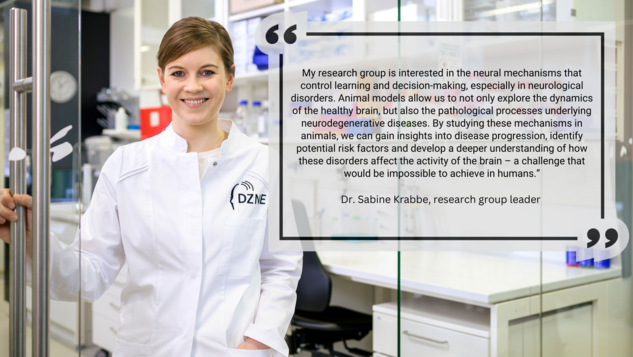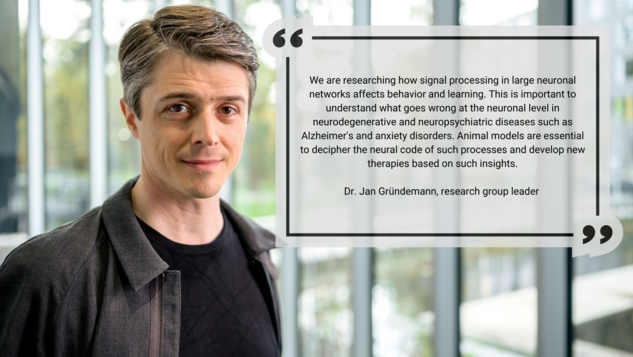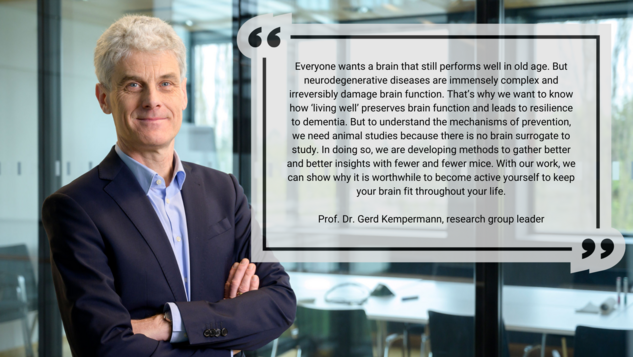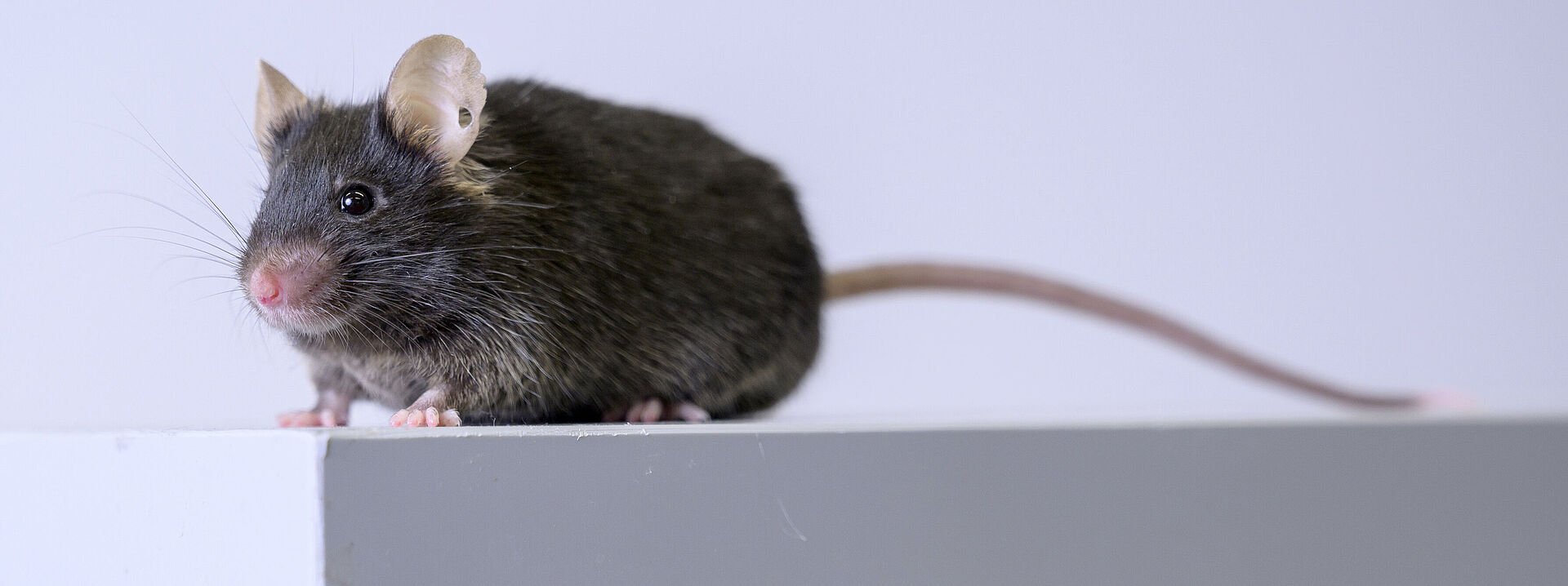
The mechanisms of neurodegeneration are still puzzling in many respects – so far, there is no cure. In view of this, we aim to lay the groundwork for better treatments and medicines for humans by deciphering the molecular and cellular processes that trigger and are associated with neuronal damage. To this end, our scientists work with cells, tissues, fruit flies, nematodes (C. elegans) and also with zebrafish, mice, and rats. These are referred to as “animal models”. This is because studies on animals can be used to replicate or “model” traits of disease and also features of the healthy human organism for scientific investigations. Hence the name “animal model”.
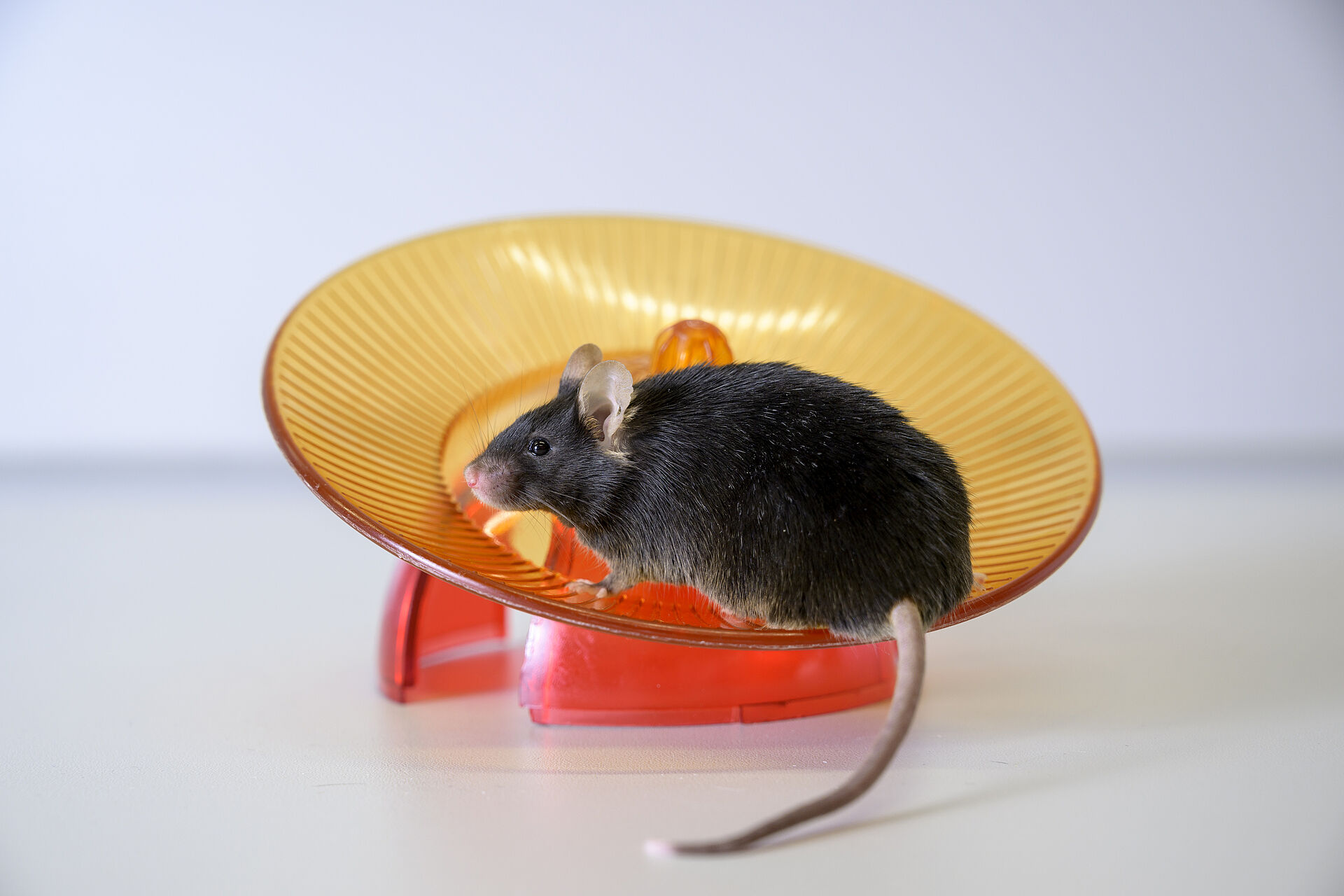
Despite the differences between animals and humans, there are similarities at the level of molecules, cells and organs, which is why studies on animals allow conclusions about what happens in the human organism – even if this extrapolation always has to be carefully considered. Nonetheless, animal experiments are currently the only alternative when it comes to certain research topics. For example, human brain tissue can usually only be studied from deceased individuals, because interfering with the brain of a living person entails risks that are generally not acceptable ethically for research purposes. On the other hand, artificially generated cell cultures – given the current state of the art – do not fully replicate the complexity of brain tissue in a living organism: A cell culture or organoid that reproduces the complex behavior of a vertebrate animal does not yet exist. Although cell cultures are very well suited for so-called drug screening, these setups essentially only register the extent to which a potential drug binds to disease-relevant proteins. They are thus at the very beginning of drug development. Which is to say that cell cultures are not suitable for investigating how a complex organism and its brain react to pharmaceutical substances. In view of this: Without animal studies, research and the development of therapies would be significantly limited, especially since promising findings from animal studies are generally a precondition for new medical procedures to be tested on humans. Fewer or no animal experiments mean – given the current state of the art – riskier studies on humans.
The fact is that animal studies have already contributed significantly to treatments. Animals studies paved, e. g., the way for so-called acetylcholinesterase inhibitors: for years, these drugs have been used in the treatment of Alzheimer’s disease. The latest Alzheimer’s drugs from the category of “amyloid antibodies” are also based, inter alia, on findings from animal studies. And in the case of Parkinson’s disease, the nowadays established therapy with the compound L-dopa (which is given to compensate for the lack of the neurotransmitter dopamine) was also preceded by studies on animals.
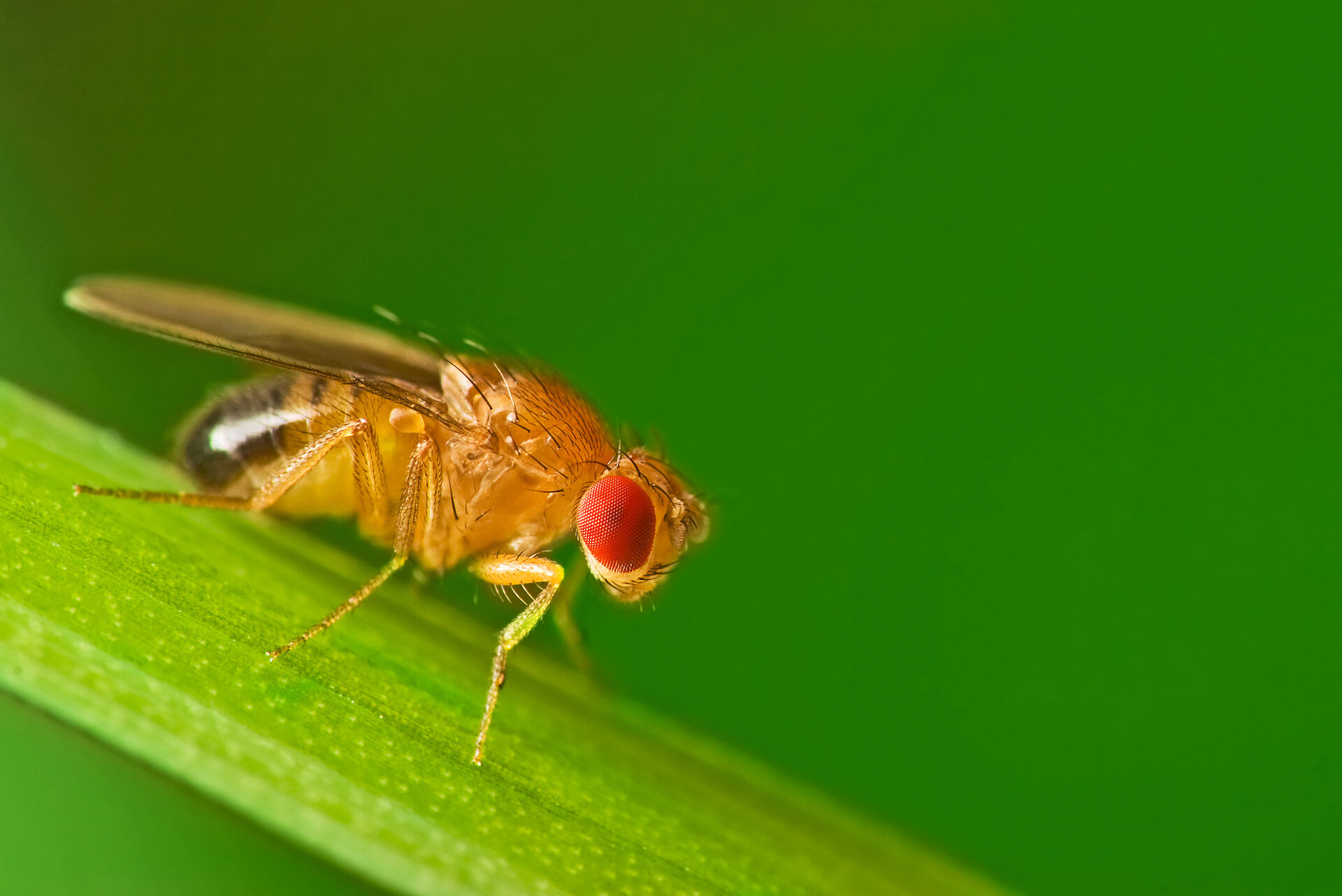
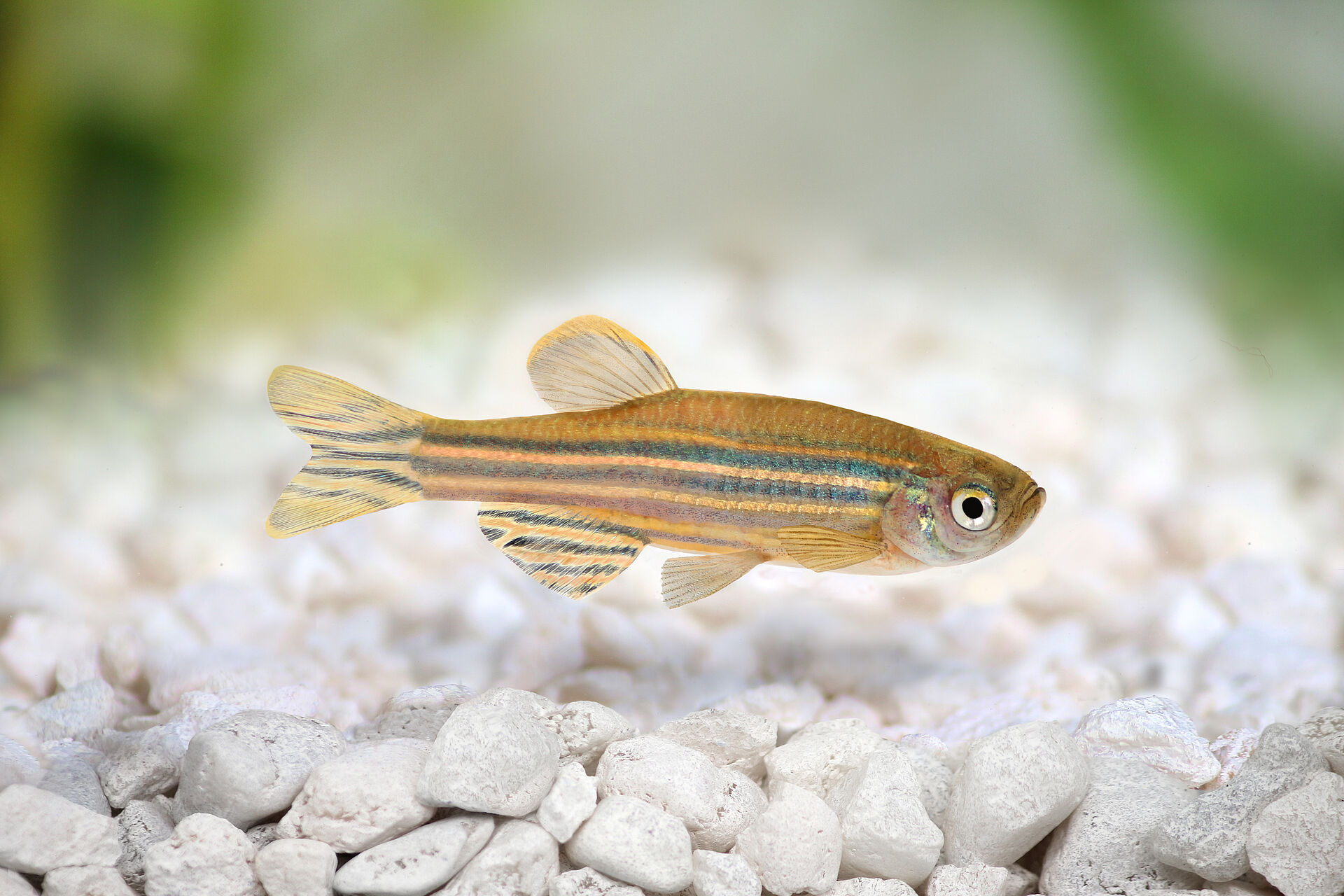
Studies on mice are part of our research on for example Alzheimer’s disease, because specific breeds with modified genome develop features of disease that are very similar to those of Alzheimer’s in humans.
We study rats especially in the context of our research on spinal cord injury.
In zebrafish, we study, e. g., how a nervous system regenerates after damage and to what extent gene mutations can lead to neurological diseases.
In fruit flies (Drosophila melanogaster), we study fundamental processes of brain development and neurodegeneration.
Studies on nematodes (Caenorhabditis elegans – “C. elegans” for short) – which grow to about 1 millimeter in length – give us insights, e. g., into microscopic aging processes that also occur in humans. This is relevant because many neurodegenerative diseases are age-related.
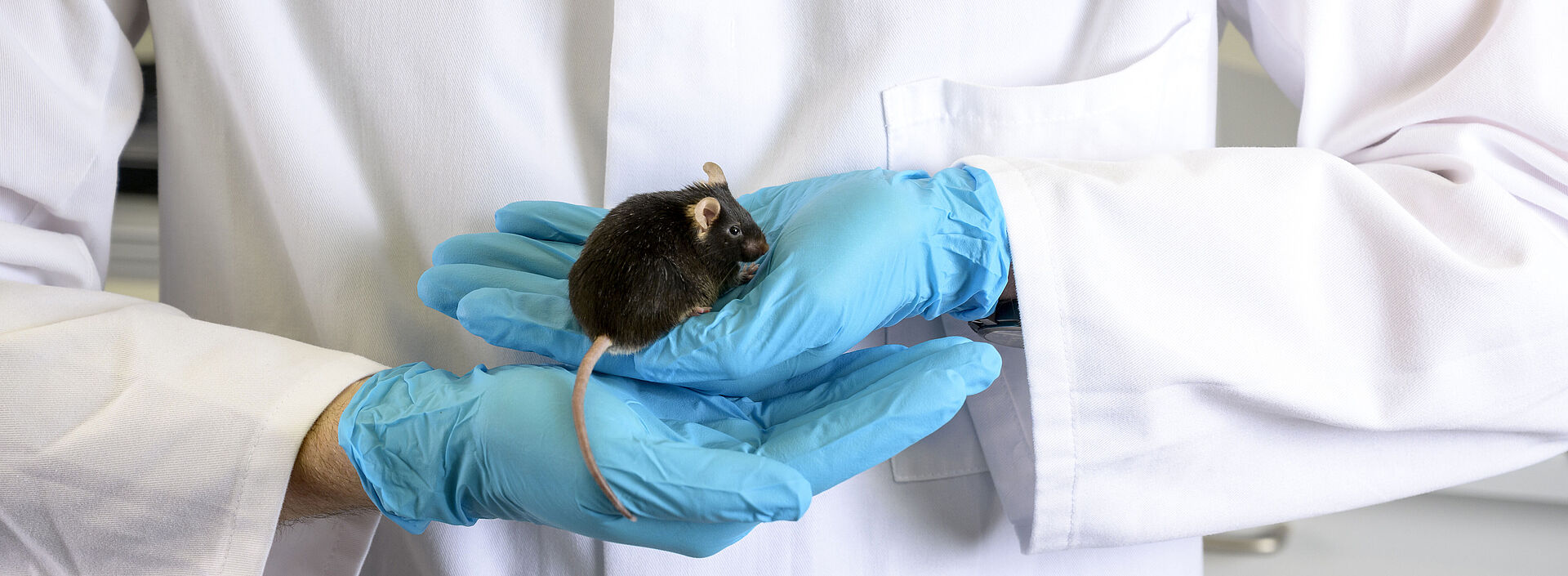
At DZNE, we are committed to the “3R principle”. The acronym stands for “Replace, Reduce, Refine” and describes a set of ethical guidelines: According to these, animal testing is to be avoided and only permissible if there are no alternative procedures that can replace animal testing (Replace). Furthermore, the number of animals used in studies should be kept as small as possible (Reduce). In addition, the animals should be subjected to as little stress as possible by using gentle study procedures – which is to say: animal distress should be minimized (Refine). The 3R principle is also reflected in the legal regulations and the approval process for animal studies.
Our scientists are trained in these principles. When planning and conducting animal studies, they are supported by veterinarians and professional animal caretakers who advise them and also ensure compliance with the 3R principle.
The laboratory animals are kept in special, state-of-the-art facilities, the housing conditions are prescribed by law and are regularly inspected by the authorities.
In Germany, any scientific study conducted on animals must be applied for and approved by the responsible state authority (Landesbehörde). Animal husbandry is approved by the regional district regulatory authority (local veterinary offices) and regularly inspected. The authorization of an application for an animal study can take several months and it happens that applications are rejected by the authorities or are only approved in an adapted way.
Studies involving mice, rats, and zebrafish require regulatory approval. Studies on flies and nematodes do not require approval.
Video on the approval process (German): youtu.be/acHPPdZToPo
Once a study has been approved, DZNE’s animal welfare officers (which are professionals with expertise in experimental veterinary medicine) supervise that the legal requirements are followed. In addition, the responsible authorities carry out unannounced inspections to generally check animal husbandry and study procedures at DZNE.
More Information (partly German)
- Tierversuche verstehen (Understandig animal testing) is an initiative of the German scientific community, coordinated by the Alliance of Science Organisations in Germany (including the Helmholtz Association, of which DZNE is a member).
- Initiative Transparente Tierversuche (Initiative Transparent Animal Testing) is an initiative of „Tierversuche verstehen“ and the Permanent Senate Commission on Animal Protection and Experimentation of the German Research Foundation.
- FAQs on animal testing from the German Federal Institute for Risk Assessment
- Test animal notification, list of responsible state authorities
- Understanding Animal Research und animalresearch.info are English-language, partly also German-language information portals about animal testing
- Die Gesellschaft für Versuchstierkunde / Society of Laboratory Animal Science (GV-SOLAS) promotes the responsible use of laboratory animals.
- Bf3R - The German Centre for the Protection of Laboratory Animals



